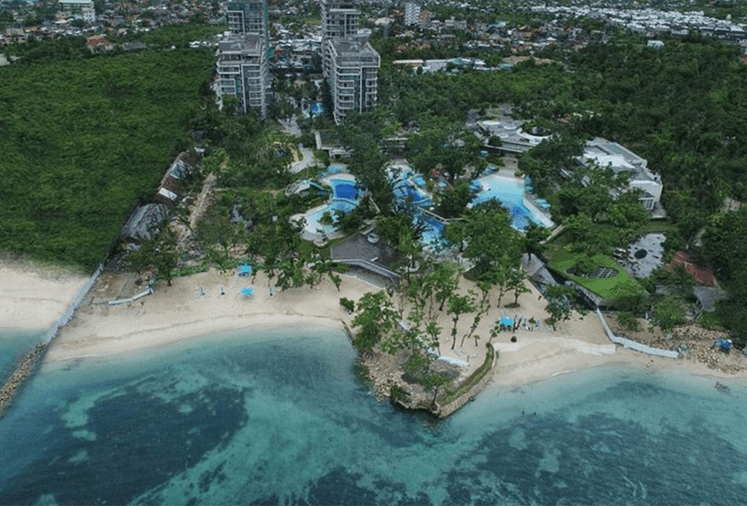Accor to bring largest Pullman property to Cebu, Damosa Land's expansion projects in Mindanao, and more

This week, Colliers Research provides insight on Accor partnering with Tytans Properties, Damosa Land's expansion projects, Cebu Landmasters targeting Luzon for development, More airport and road projects on this current administration, and DTI eyeing more Japanese manufacturers.
Hotel manager Accor to bring largest Pullman property to Cebu
SUMMARY
Global hotel chain Accor has partnered with Tytans Properties for the development of Pullman Mactan Cebu Hotel & Residences. The project will consist of 200 hotel rooms and 900 apartment units spread across three towers, making it the world’s largest Pullman property. Construction is scheduled to begin in 2025 and is projected to be completed by 2028.
RESEARCH VIEW
Developers need to strategically plan their expansion now that the hospitality sector is gradually recovering and with foreign arrivals nearing pre-pandemic levels. Colliers believes that developers should carefully assess whether to launch or expand homegrown Philippine brands or partner with foreign hotel operators. In our view, the substantial number of new hotel rooms to be completed in Metro Manila this year (5,120 in total) should also unlock opportunities to build more accommodation facilities in key destinations including Cebu, Bohol, Davao, Palawan, Bacolod and Pampanga. Developers should also explore building hotels near stand-alone convention centers and newly-modernized airports to capture the rebound in local and foreign tourists.
Damosa Land details Mindanao expansion projects
SUMMARY
Damosa Land Inc. (DLI) is looking at expanding its portfolio in Mindanao with the launch of two residential projects and one office development in 2024. DLI is set to start its construction on Agriya Gardens in March 2024, a high-end residential community in its 88-hectare (217-acre) Agriya Township in Davao del Norte. Kahi Estates, due to be completed in 2027, will be DLI’s first agri-residence that will “champion wellness and embrace multigenerational living” while integrating modern Filipino architecture. Damosa is also scheduled to launch Regus Damosa Diamond Tower, its fourth flexible workspace facility, in June 2024.
RESEARCH VIEW
Colliers encourages local and national developers to continue with their landbanking initiatives, especially with Davao’s improving infrastructure network. We recommend that developers evaluate the attractive product types and price segments for their residential developments, especially with the rising demand for upscale and luxury projects. Meanwhile, developers should also explore the viability of launching more flexible workspaces as we have seen growing interest from traditional, outsourcing firms and startups using these as incubation spaces prior to securing long-term and permanent offices.
Cebu Landmasters eyes Luzon market
SUMMARY
Cebu Landmasters Inc. (CLI) is planning to expand outside the Visayas-Mindanao (VisMin) region and make its first foray in Luzon in 2024. CLI is looking at expanding in Southern Luzon specifically in Camarines Sur, Batangas, Cavite, as well as in Central Luzon. The property firm will also increase its capital expenditure this year to fund its ongoing residential, hotel and township developments. CLI currently has nine ongoing township developments in Visayas and Mindanao.
RESEARCH VIEW
Colliers recommends that developers implement strategic landbanking particularly in southern and central Luzon which are popular options among residential investors and end-users because of their proximity to Metro Manila. The top choices include Cavite, Laguna and Batangas in the south, and Pampanga and Bulacan in central Luzon. Colliers also believes that the completion of big-ticket infrastructure projects such as Metro Rail Transit-7 (MRT-7), New Manila International Airport, LRT-1 Cavite Extension, and North-South Commuter Railway should entice more property firms to develop new masterplanned communities in these preferred provinces for property development.
More airport, road projects added to flagship program
SUMMARY
The Marcos Administration has added more airport, road, and climate and disaster risk reduction projects to its Infrastructure Flagship Program (IFP). The National Economic Development Authority (NEDA) has identified 23 projects to be included in the IFP list. Meanwhile, the NEDA Board removed 36 projects including Davao City Expressway and the North Luzon East Expressway. The Marcos administration aims to spend PHP1.5 trillion (USD26.7 billion) on infrastructure this year, equivalent to about 5.5% of the country’s gross domestic product (GDP).
RESEARCH VIEW
The Philippine government's thrust of intensifying infrastructure implementation is a plus for the leisure sector. The modernization and expansion of airports should enable the country to attract more tourists while the road improvement projects should facilitate the entry of more local and foreign visitors to sites that have great potential to become key tourist destinations. The continued allocation of between 5% and 6% of the country's GDP on infrastructure should also keep the Philippines at par with its competitive Asian peers including China, Singapore, Malaysia, Thailand, and Indonesia. Ramped up infrastructure spending should support the property sector's recovery this year.
DTI sees more Osaka-based manufacturing investors
SUMMARY
The Department of Trade and Industry (DTI) is confident of attracting more Osaka-based businesses to invest in the Philippines. The department said that among the firms already operating in the country include Showa Spring Co. Ltd, OB Kogyo, Ltd., Nipro Corporation, Sharp Corporation, and Panasonic Corporation. These are manufacturing firms that are specifically into pressed component parts, precision plastic parts, medical, glass, pharmaceutical, and consumer electronic products. Trade secretary Alfredo Pascual said more Japanese manufacturers have expressed interest to invest in the Philippines by integrating more Japan-based supply chain stakeholders into their operations. DTI said it is also planning to attract new small and medium enterprises from Japan.
RESEARCH VIEW
Attracting more Japan-based manufacturers should benefit the Philippine manufacturing and industrial sectors. In our view, the government should entice more Japanese manufacturers that are likely to open facilities within the country’s industrial parks especially those located in northern and southern Luzon. Enticing more businesses should also avert substantial spike in industrial vacancy especially in Cavite-Laguna-Batangas corridor in the next 12 to 24 months. More Japanese manufacturers in these industrial parks should also raise the value of manufactured goods especially in northern Luzon. Attracting more Japanese supply chain operators should also result in more sophisticated, high-value supply chain processes that should further raise the attractiveness of northern and southern Luzon for global manufacturing operations.
SOURCE: https://www.colliers.com/en-ph/research/property-market-intelligence-accor-dliexpansion-cliexpansion-ifpprojects-dtiinvestors?fbclid=IwAR3Sx-pg8FeEMrRNZ0vK1gnUVF-68-lFgaXgkf91RfPDJ3O4PS6fLdInwlg
Tags: Real Estate Cebu News














